The content of the article
Family variety is suitable for those gardeners who love large early ripe tomatoes. The hybrid, bred by Russian specialists, took all the positive characteristics from the parent varieties - high yield, fruiting throughout the summer season and non-susceptibility to most diseases of nightshade crops.
Brief description of the variety
This hybrid belongs to early ripening, approximately 115 days after the appearance of the first loops, you can already start harvesting. Variety tomatoes feel good both in the open ground and in greenhouses. Family belongs to the determinant type, its bushes in height reach 110 cm. Leaves of the usual form for tomatoes, dark green. Fruits are formed in brushes of 5-6 berries.
The average yield is 4 kg per bush, but with careful care it can be more - up to 7 kg. Accordingly, subject to the recommended planting scheme, receive 15-20 kg per square meter.
Fruit Description
Berries of the Family family delight the eye with their elegant round shape and beautiful color of rich red tones. Tomatoes are large enough, their average weight is 220 grams, but subject to the rules of agricultural technology and regular feeding, they often grow up to 300 grams. Taste - saturated tomato, sweet with a slight acidity. The pulp is fleshy, dense and very juicy, with a large number of seed chambers.
Features of agricultural technology
When 2-3 real leaves form in plants, seedlings are needed to pick. For proper further development, they are transplanted into larger containers, at least 0.7 liters. Before transplanting, at least 3 days in advance, containers with seedlings are spilled with fertilizer, for which potassium nitrate with sodium humate is well suited. After a week, top dressing can be repeated.
In the southern and central regions of Russia, the Semeyny variety grows well in open beds, but in areas of higher latitude it needs greenhouses. Choosing a place for tomatoes is of great importance for a rich harvest: the place should be well-lit by the sun and ventilated. It also matters which plants were previously grown on this bed. Early white and cauliflower, cucumbers, peas and other legumes, as well as carrots, beets, and onions, are recommended as precursors. Plants are planted at a constant place of growth when they reach about 25 cm in height and the trunk gains a thickness of at least 7 mm. Place 3 bushes for each square meter of plantation.
Agronomic events for the Family variety are fairly standard. He needs regular loosening of the soil, providing aeration of the roots and preventing drying of the upper layer, properly organized watering with warm water under the root of the bush, as well as timely weeding.Proper bush formation requires timely pinching: excess shoots that appear in the axils of the branches are removed. The peculiarity of the variety is that when the first brushes of the fruits are tied, the leaves below the stem are cut off, repeating this for subsequent fruits. To maintain branches weighed down with fruit brushes, plants need a garter.
In addition, tomatoes need adequate nutrition (at least 4 times per season), for which you can use mineral and organic fertilizers. The hybrid has gained good resistance to tomato diseases; in particular, he is not afraid of the tobacco mosaic virus, cladosporiosis, fusarium and gall nematodes. The variety requires that the ripened fruits be removed on time, so as not to stop the plant stem in growth. Early berries are removed at the stage of milk ripeness to stimulate the development of subsequent ones.
The opinion of gardeners
Gardeners who purchase the Family variety really like the characteristic sweet and sour taste of the fruit, which they successfully use for a variety of homemade preparations: pickles, mixed vegetables, marinades. Survey respondents often report high crop yields and disease resistance.
Video: a unique way to water tomatoes

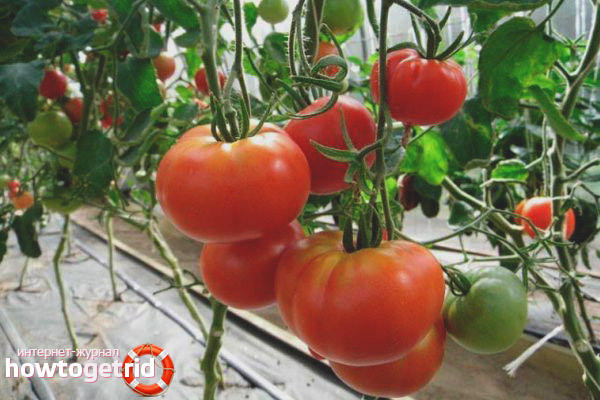
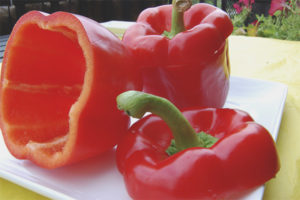
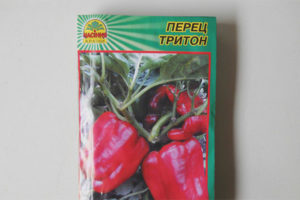
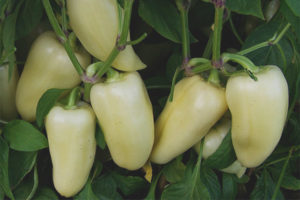
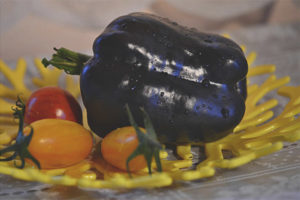
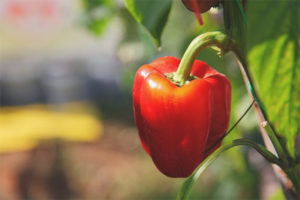
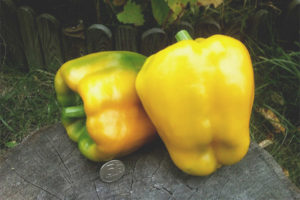
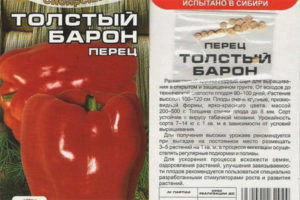
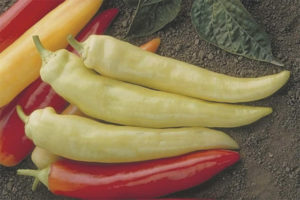
Submit